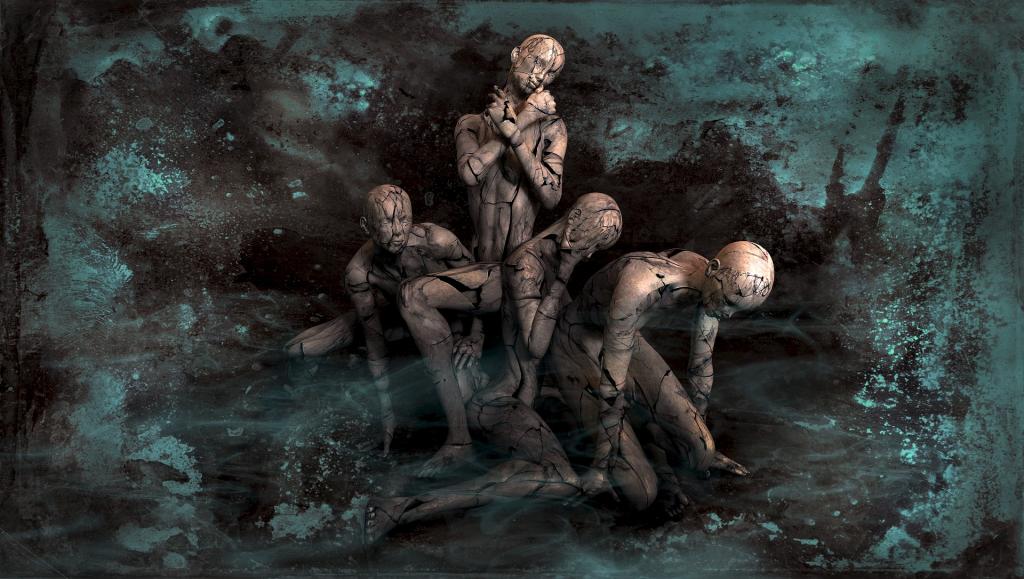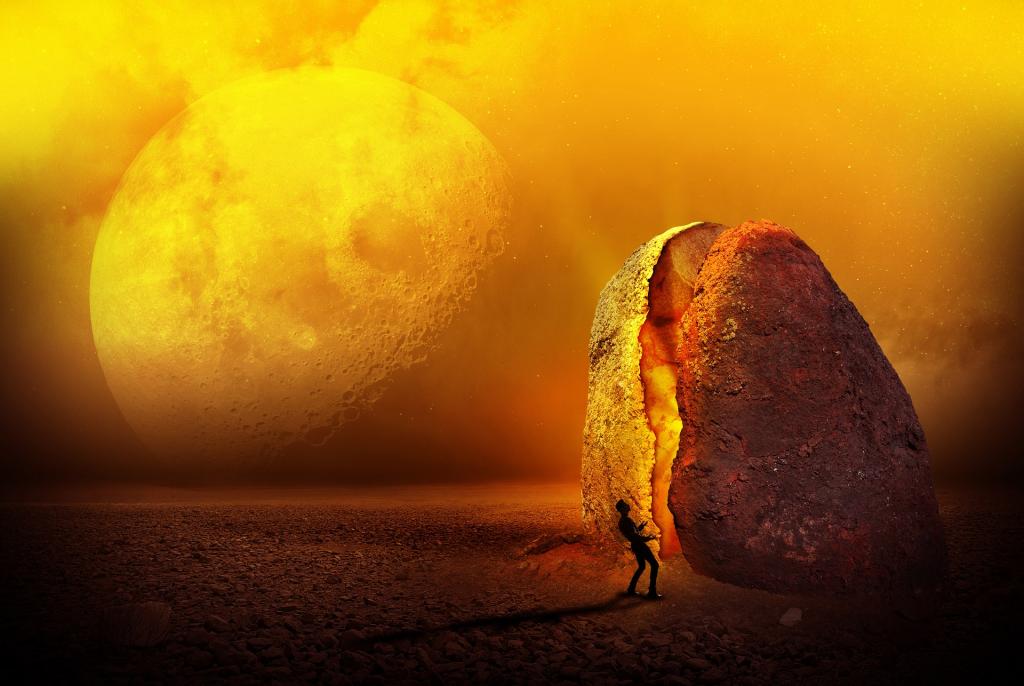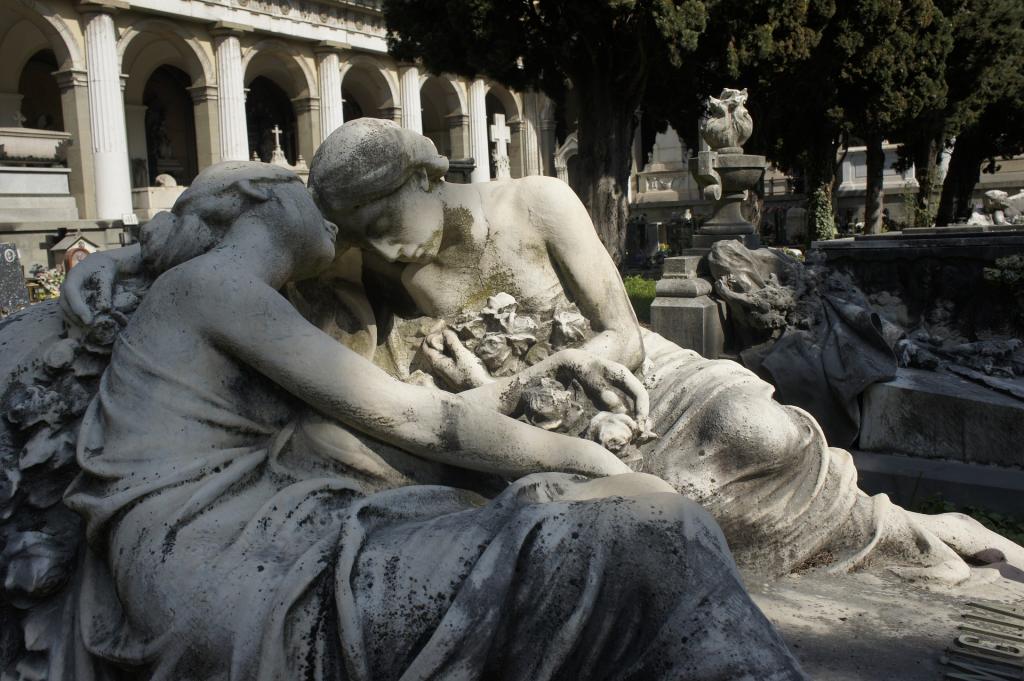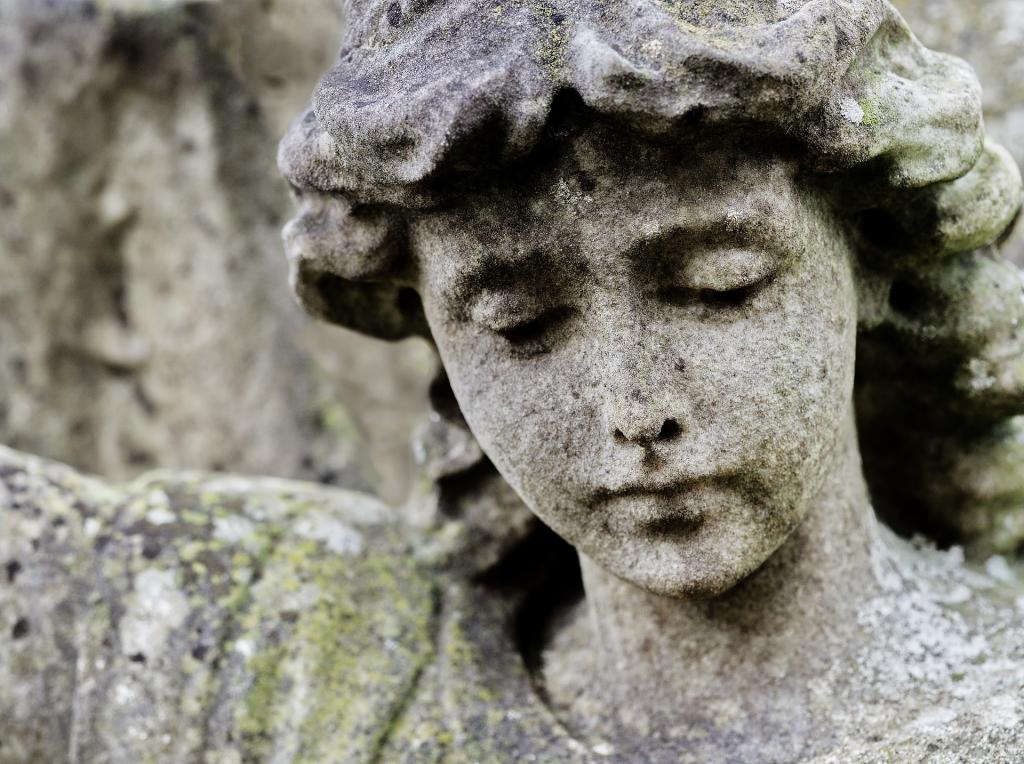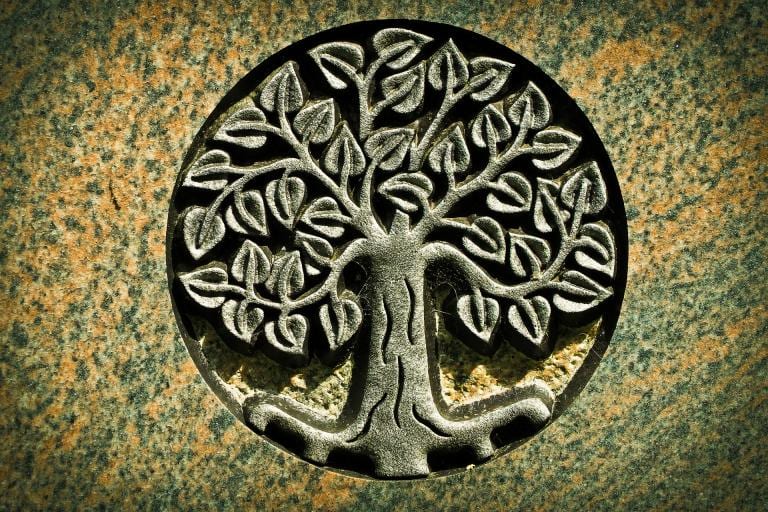
When it comes right down to, our attempts to reach out across the cosmic divide and touch the face of the Divine are always fraught with one very distinct danger: that when we reach that horizon beyond which our minds cannot pierce, we will see a mirage hovering in the distance.
To souls thirsty for mystical contact, these mirages are easily mistaken for God. Most often, though, they are simply representations of aspects of our own psyches. Like the “demons” that so many desert fathers are said to have seen in their protracted fasts, they are visions of our own desires, fears, hopes, fancies and obsessions.
When it comes to idolatry or to other religions, especially to “spiritual” movements like the New Age or Neo-Paganism, Christians are often very quick to notice this and point it out. We are generally a lot more hesitant to point that mirror at our own theologies, to question the desires, fears, hopes and obsessions that have haunted the Christian horizon over the centuries.
I posted the first part of this some time ago, and I apologize for the gap in publishing. My only defense is that it is a global pandemic, I have many children, and also apparently in times of quarantine I prioritize home repair and video games when I have free time.
Anyway, back to the subject at hand.
Life Sucks
I want to start with what I think is one of the greatest and most consistent mirages that has underwritten Christian theology going back at least as far as the fourth century, possibly as far as St. Paul. This is the belief that there is a great disconnect between the world as we encounter it and the world as God originally intended it to be.
Chesterton once quipped that Original Sin is “the only part of Christian theology which can really be proved.” The proof is, well, look around you! There is war and poverty, suffering and starvation, disease and bullying and people with inconceivably poor taste in socks. Could God possibly have intended the world to be this way?
Clearly not. A good God must have intended a good world. And indeed, if we look at Genesis we see that God sees the world for the first time and declares it to be very good. But the world that we are actually born into is not “very good.” It’s frightful. It’s depressing. It’s a “vale of tears.” That can’t have been the plan.
So how do we explain the disconnect between a world that could have been willed into existence by a “good” God and the world that we live in? The traditional answer is to point to sin. One of the worst things about the world as it is, perhaps the most egregiously unacceptable thing, is the fact that human beings do evil to one another. Worse, far worse for someone who desires righteousness, is the fact that when I do my absolute best to be a good person, to care for others, to serve God and love my neighbour, I still do bad things.
Perhaps I do them from ignorance. Perhaps from weakness. I may lash out at someone instinctively, in a moment of fear, before I even have the chance to make a conscious decisions. Maybe I have a moment of pique where I’m angry with God and I choose evil just out of spite. Or perhaps, as is too often the case, I’m presented with an array of conflicting human needs and I have to choose who I’m going to hurt in order to avoid hurting someone else.
In any case, it does not lie within my power to effectively avoid ever causing harm to others. The moral law condemns me from the outset: no human being can actually fulfill it.
Which of course means that some disaster must have happened. This can’t be how things are meant to be. It’s intolerable, unthinkable.
The world must once have been good, and now it is fallen. We can observe this clearly with our own eyes and our own hearts. What other explanation could there be?
The Problem with the Problem of Evil
At its heart, the problem is evil centers around a fairly simple prejudice: that the world as we find it is essentially inadequate. Suffering is evil. Death is bad. Human limitations are sinful. God intended for everything to be much better than this, and obviously God is angry that things are so screwed up.
But what if actually it’s not God who has a problem with the world? I mean, God is the only one with the power to just change the status quo with a thought. If God so hated the world that he really just wanted to drown the thing in floods and burn it up in hellfire, why bother suffering and dying to save it? Why not just stop thinking about it and let it vanish into the nothingness from whence it came?
Hit the reset button. Start over. Make a world where beings of pure thought flit about in idle delight enjoying everything, needing no sense of pain or fear to warn them of dangers because dangers are not a thing. Create a world without shortages, without competition, where living things don’t need to kill and eat other living things in order to survive.
The conditions that necessitate “sin,” they are there long before there are any human beings. Death and corruption, decay and competition, violence and hunger, those things are observable in the historical record for ages before the first homo sapiens join in. If God’s position is that we are to blame for the state of the world, God is a gaslighter extraordinaire.
Which is why it seems to me much more likely that it’s we who are angry, we who resent our own limitations, and we who project this wrath onto God.
Le Monde C’est Moi
Humans, in general, tend to find it very difficult to deal with the fact that we are finite, bounded, limited beings and that we are not the center of the universe. The ego (the thing that we’re trying to overcome in most spiritual systems) cannot conceive of a world that is good unless it is primarily good for me.
This is because the ego is basically an infantile aspect of the psyche that kind of behaves and thinks like a four year old. It wants constant attention, it thinks it should get all the toys, it has trouble sharing, it thinks that it has superpowers or that at the very least it should have superpowers, and it becomes really upset and throws tantrums if it is thwarted in some way. As far as the ego is concerned, the ego is the single most important thing in all the universe and others only exist to provide for its needs and to carry out its projects.
Now all of this sounds awful, but is actually very good. When you have an infant that does not self-assert in this way, it’s generally a sign of severe trauma. Lack of self-assertion impedes the entire development of the personality, and it can even endanger the life of the child if, for example, he doesn’t learn to ask for basic necessities or seek help in emergencies. A good, strong little ego in a toddler may be insufferable, but it’s also healthy.
Of course, as we get older we have to learn to get over ourselves. The constant conflict created by clashing infantile wills is manageable: there are larger, stronger people who can separate warring toddlers and force them to share nice. And if the toddler climbs to the top of a bookshelf and can’t get down, there is a kind, tall person who will lift them safely to the ground.
Adults have to be able to navigate conflict and limitation without the oversight of parents and daycare workers, so it becomes a serious problem if we grow up without ever at least starting the process of moving beyond the ego. Narcissists are dangerous to society precisely because they are not able to balance their own needs against the needs of others, and because they are chronically unaware of their own limitations and inabilities.
But even in a person who is reasonably well adjusted to adult life, ego remains. It may not dominate, but it certainly shapes our thinking, our feeling and our beliefs about the world. So even into maturity and old age, we struggle to accept our finite, limited nature.
In the spiritual life, this takes two basic forms. The first is that we project our own sense of frustration, resentment, anger and futility onto God. We come to think that God is just as upset by our limitations as we are, and that the universe is constantly weighing us and finding us wanting.
The second is that we become angry and upset with the fact that the world as we find it is not perfectly conformed to our needs, desires and wills. We experience the facts of death, pain, conflict, scarcity and human limitation as injustice.
The atheist can take this out in the form of anger towards the idea of God, and towards religions which posit the existence of a God who is good. But for a religious person, the problem of suffering and death needs to resolved in a different way. The outraged ego cannot blame God for the intolerable state of reality, and so it must develop a narrative in which someone else is to blame.
Circle of Life
In Christianity, the typical form of this narrative is the story of the Fall: in the beginning, God created a world that was perfectly and ideally suited to the physical, spiritual and psychological needs of the human person. Then we screwed it up.
The problem with this is that it is not only ahistorical, it is also conceptually problematic. If there is no death, there is no life. The entire phenomenon of life on earth (the only kind of life we have been able to observe) is predicated on the practice of living things killing and eating other living things. This is how a finite supply of basic elements is assembled and reassembled into a vast and constantly changing diversity of forms. What we call life is mostly the dynamic process by which organisms break down dead life forms and turn them into new living things.
Human life, by virtue of the fact that it is life, is framed by death. Death did not enter the world as a catastrophic disruption of the original plan. Death is integral, baked in. It’s an essential part of the nature of life, and without it complex life forms like ourselves could never have come into being.
Huge swathes of Christian theology are thus concerned with assuaging the ego’s basic sense of resentment and outrage about the very conditions which are necessary to allow egos to exist in the first place.
Maxima Culpa
It seems not only unlikely, but absurd, to suspect that God shares our dissatisfaction with the nature of the life. The feeling that death is wrong, that suffering is wrong, that human imperfection and human limitations are wrong, those are very human feelings. We project them onto God, and end up coming to the conclusion that there is a vast chasm between the world as God wills it to be and the world as it actually is.
We then assign blame for this situation to human beings. For those of us inclined to internalize negative feelings, this results in a huge weight of guilt, a feeling that we are inadequate before God and a sense that we must constantly strive to justify our existence – which turns out to be an impossible task.
Since the task is impossible, we are forced to crucify Christ in our minds, in our hearts, and in our own flesh in the hopes that God will “forgive” us for being merely human. Naturally, the fear that we have crucified God in order to make up for our own inadequacies only makes us feel more guilty and the cycle is perpetuated.
On the other hand, those who are inclined to externalize negative feelings tend to respond with judgment and anger. The wrath of God is kindled by the sins of other people, and those other people must either be punished or restrained from sinning in order to placate God.
Since it is impossible to force all other humans to behave “correctly,” it becomes necessary to crucify Christ again and again in the other and offer up the body and blood of the scapegoats – the Jews, the homosexuals, the witches, the heretics – as a sacrifice to a God who is presumed to share our hatred of the human condition.
The Good Death
I think Christ shows us something quite different from this.
The heart of the Gospel seems to be that God loves the world, loves human beings, wants us to have life, wants us to forgive one another, and wants us to let go of the various debts, real or perceived, that we feel we are owed.
How is this achieved? Through the radical acceptance and embrace of the realities of death, sacrifice and suffering.
Death leads to life leads to death leads to new life. We give our bodies and our blood, and we receive the bodies and the blood of others. Without this cycle, we can have no life within us.
The reconciliation of God and humanity is not achieved by placating God, somehow using the body and blood of a dead god-man to convince God that maybe humanity isn’t completely depraved and horrible. It is achieved by reconciling humanity to the fact that God has not made a world that is entirely suited to our egos. That God is infinitely vaster than our needs, desires, projections and interests. And that death and pain and suffering are not “evils.” They are part of the process of a life, a part of a world that is fundamentally good.
Image by Ich bin dann mal raus hier. from Pixabay


